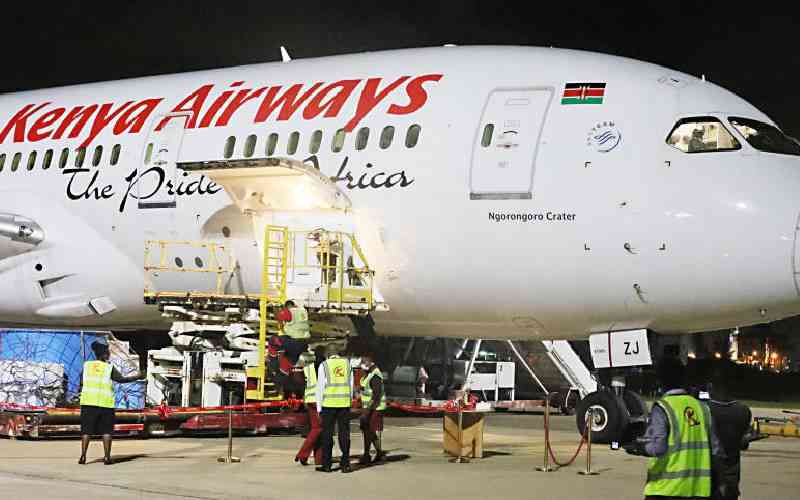
Kenya Airways (KQ) and South African Airways (SAA) are seeking exemptions from clauses of competition laws in their two countries and regional trading blocs that could hamper their planned partnership deal.
In their quest to form a pan-African airline next year, the carriers will need to share resources and, at times, information that different airlines might not ordinarily share.
But without exemptions, they might get into trouble with competition and consumer watchdogs in their respective countries.
KQ and SAA last year signed a partnership framework that is expected to enable them to form a pan-African airline. Working together will enable them lower travel costs and improve connectivity within Africa.
The carriers have also said there are plans to onboard another airline, preferably a West African carrier.
KQ on Wednesday said the airlines are seeking exemption from certain laws that would otherwise make it difficult for the partnership to materialise.
"The goal is to come together with SAA and other airlines in Africa and form an airline group that can lower the unit cost," said KQ chief executive Allan Kilavuka during an investor briefing on the airline's financial results for the half-year to June 30 this year.
"We wanted to see if we can share assets and other resources, but the authorities need to immunise us so that we can overcome hurdles that may come up in regards to anti-trust and anti-competition requirements."
This means KQ, which cut its half-year loss to Sh9.9 billion from Sh11.49 billion last year, would have to seek exemptions from the Competition Authority of Kenya (CAK) as well as the Common Market for Eastern and Southern Africa (Comesa) Competition Commission.
SAA, on the other hand, needs approvals from South Africa's Competition Commission as well as the Southern Africa Development Cooperation (SADC).
When they signed the partnership framework, the two airlines noted that their partnership was a critical step to the realisation of both the Single African Air Transport Market (SAATM) and the Africa Continental Free Trade Area (AFCTA) initiatives.
The two initiatives will be key in increasing air connectivity and boosting trade as well as tourism while promoting the growth and value of air transport in Africa.
Bigger airlines
The partnership is also critical for both airlines to survive an onslaught by international carriers that have increasingly become the go-to airlines for travellers to and out of Africa.
"We could continue operating as KQ, but we would always be at risk from bigger airlines that can easily reduce costs and undercut us," said KQ chair Michael Joseph.
"We are making slow progress because we have to deal with many issues such as the competition authorities as well as the national interests of both countries. We do not want to rush and fail."
He added that there are many opportunities for airlines in the region to partner and offer connectivity due to limited road and railway corridors, with air travel offering the easiest way to improve connectivity.
If well positioned, Mr Joseph noted, the planned pan-African airline would benefit from these opportunities.
Besides convincing the watchdogs that the proposed deal would not breach anti-trust laws, the two airlines will have to grapple with their loss-making streaks.
For about a decade, they have been loss-making and surviving on government bailouts.
 The Standard Group Plc is a multi-media organization with investments in media platforms spanning newspaper print
operations, television, radio broadcasting, digital and online services. The Standard Group is recognized as a
leading multi-media house in Kenya with a key influence in matters of national and international interest.
The Standard Group Plc is a multi-media organization with investments in media platforms spanning newspaper print
operations, television, radio broadcasting, digital and online services. The Standard Group is recognized as a
leading multi-media house in Kenya with a key influence in matters of national and international interest.










